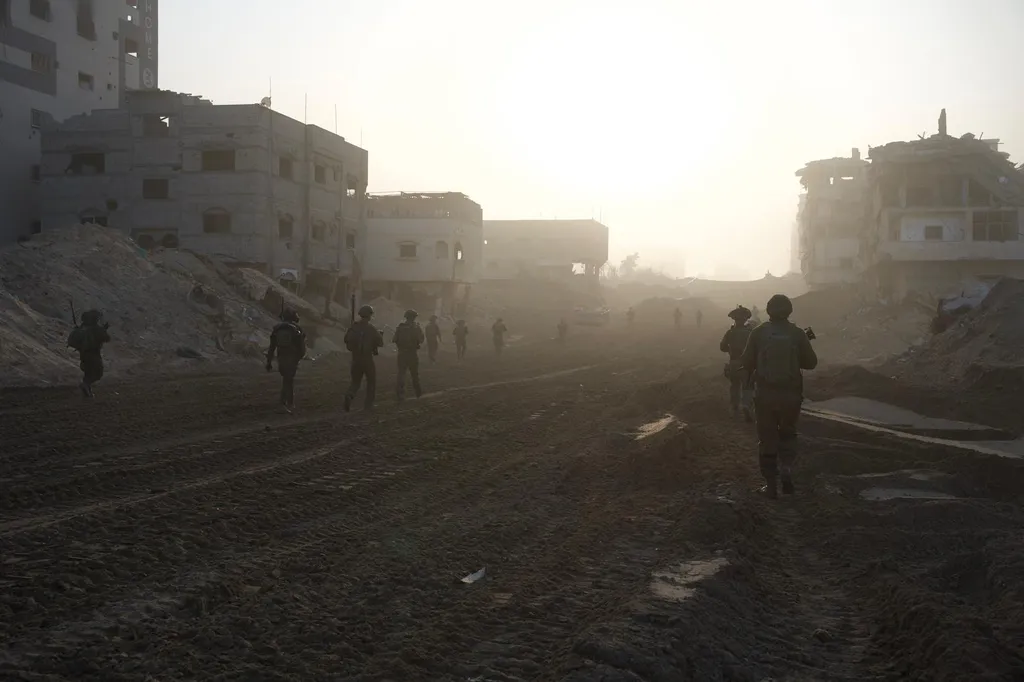The Parliament adopted on Thursday a resolution on the humanitarian situation in Gaza, the need to reach a ceasefire and the risks of regional escalation by 312 votes, 131 against and 72 abstentions.
The joint motion for a resolution had been proposed by the S&D, Renew, and Greens/EFA groups in the Parliament. In a last-minute amendment, proposed by the EPP group, the call for a ceasefire in the first paragraph in the resolution was linked to two other demands that already were mentioned in the text.
The paragraph reads now as follows: “Calls for a permanent ceasefire and to restart efforts towards a political solution provided that all hostages are immediately and unconditionally released and the terrorist organisation Hamas is dismantled.”
The Israeli government claims that only military pressure on Hamas will force it to agree to a new hostage-prisoners exchange and opposes a permanent ceasefire until Hamas’ military capacity and infrastructure have been dismantled. It has not worked until now and Israel’s two goals in the war – securing the release of all hostages and dismantling Hamas– appear contradictory.
The dire humanitarian situation in the Gaza Strip and the suffering of the civilian population as the result of the on-going war are described in the background to the paragraphs in the resolution.
According to UN figures quoted in the recitals, 100 % of the population in the Gaza Strip is suffering from acute food insecurity, 50% are experiencing an extreme lack of food and starvation and 26 % are suffering from catastrophic hunger and starvation. The access to health care has been severely limited because of damage to hospitals that were used by Hamas for its terrorist activities.
The resolution says that the Israeli authorities control entry to and exit from the Gaza Strip through all border crossing points, including the one with Egypt, and have been restricting humanitarian aid to the area since 7 October.
The resolution includes a number of paragraphs that deal with different aspects of the conflict, including its regional implications. It condemns the “disproportionate Israeli military response, which has caused a civilian death toll of unprecedented scale”. It also underlines the “urgent need for full, rapid, safe and unhindered humanitarian access to and throughout the entire Gaza Strip.”
It recalls that Israel has the right to defend itself within the limits of international law, “which outlines that all parties to a conflict must distinguish between combatants and civilians at all times and that attacks must only be directed at military objectives and that civilians and civilian infrastructure must not be targeted in attacks”;
As regards Hamas, the resolution “deplores Hamas’s abuse of Palestinian civilian infrastructure, its combat operations in densely populated civilian areas, building of tunnels and use of human shields.”
In paragraph 15, the Parliament reiterates the EU’s strong support for the work of the International Criminal Court (ICC) and the International Court of Justice (ICJ) and calls for those responsible for terrorist acts and for violations of international law to be held to account. It takes note of the case brought by South Africa against Israel at the ICJ.
South Africa instituted proceedings against Israel on 29 December concerning the application of the ‘Convention on the Prevention and Punishment of the Crime of Genocide’. The hearings were held last week in the Hague. The president of the Court said that a decision on “provisional measures” requested by South Africa will be announced as soon as possible.
South Africa, which has not condemned Hamas terrorist attack, claims that Israel’s war against Hamas shows a pattern of “genocidal intent”. It had requested the Court to indicate that Israel should “immediately suspend its military operations”. Israel totally rejects South Africa’s claims on legal grounds and has responded that the allegation of “intent” is based on a selection of extremist statements that do not reflect its policy.
The Foreign Affairs Council’s meeting on Monday (22 January), chaired by the High Representative for Foreign Affairs and Security Josep Borrell, will be dedicated to two main issues, the wars in Ukraine and in Gaza, and their implications for the EU. The discussion on the situation in the Middle East will be informed by separate exchanges with the foreign ministers of Israel, Palestine, Jordan, Egypt and Saudi Arabia.
The Parliament’s resolution is not binding. Asked whether the Council meeting will discuss the resolution, Peter Stano, EU’s lead spokesperson for Foreign Affairs, explained on Friday that the Parliament and the Council are different institutions with different competencies.
“The decisions and positions of the EU on foreign policy, security and defense are formed by the governments of the EU member states represented by their foreign ministers,” he told The Brussels Times. “The agenda of the foreign affairs council is set regards less of the resolutions adopted by the Parliament.”
He declined to comment on the Parliament’s resolution but was sure that the member states will also take into account its position. “The governments and their foreign ministers will see if any adjustments to the established and agreed EU position are necessary.”
Update: The article has been updated to include the reply of the foreign affairs spokesperson at the Commission’s press conference on Friday.
M. Apelblat
The Brussels Times

